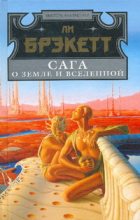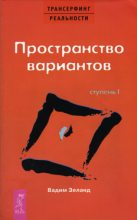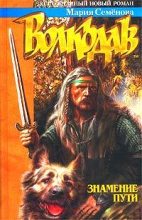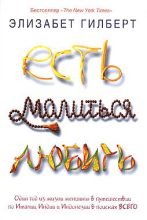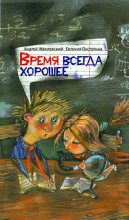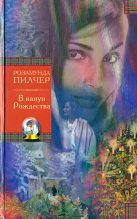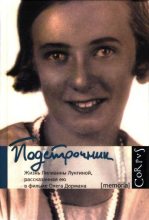- 1
- 2
- 3
- . . .
- последняя (32) »
Stephen Ludger Lapeyrouse Towards the Spiritual Convergence of America and Russia: American Mind and Russian Soul, American Individuality and Russian Community, and the Potent Alchemy of National Characteristics
Preface
With this preface written especially for the free, 2014 electronic version of his 1990 book, the author wanted to take the opportunity thereby provided to explain a bit to the reader (now reading sometime after this new, unrevised edition was published and released into the internet world) about how the author saw his younger work written some 25 years before 2014 — for he himself had definitely not stopped studying, growing, maturing, nor had he stopped his daily social and life observations and reflections, nor his experiences and travels, and this all not only of Russia and America. Additionally, the Russian nation of and to which in part he published his 1990 essay no longer existed. Many completely unexpected yet deeply intriguing experiences in Leningrad and Moscow in the latter 1980s lead the author to seek readings on that theme often named the “Russian soul”, and when library research and a direct personal query to the head of a preeminent Slavic department in the USA indicated there was no such work per se, the author — then involved also in a wider spectrum of studies and lectures in what sub specie academiae is often called the “history of ideas” (evidenced in his public “Chrysopylae Lectures” given contemporaneously in California, and in part in apartments in Moscow and Leningrad) — decided to write towards making some greater sense of his experiences, discoveries, studies, and observations related to the differing American and Russian psyches (“national characters”), their traditions, histories of ideas, each societies’ “philosophies of man” (individually and socially), and all related to the shared “vertical” ideas of man present in the differentially-shared essential ideas of Christian “anthropology”. When looking back some years after the 1990 publication, the author found a certain Romantic idealism present in the overall conception, structure and “hopes” of the work — recognizable as, to a degree, a period in his life and intellectual development, as well also influenced by the sunny “spiritually idealistic” context of conditions of the life, times and mind of California when and where it was written. Also, the limited then possible direct experiences in the USSR due to Intourist and visa restrictions had their influence on the breadth and depth — or perhaps lack thereof — of the author’s experiences and understanding of Russia and of Russians under those Soviet conditions. For “Russia(n)” under late Soviet conditions — if only that which the author had the gain and gratitude to experience in what turned out to be the last years of the USSR — were very different from the social, psychic, cultural conditions that had gradually developed, that had revealed themselves, since the dissolution of the USSR, especially in the 10-15 years before this preface’s 2014 composition. “Being determines consciousness” Marx wrote realistically — contradicting the philosophically high-flying Hegel. This was fully proved in history to anyone who lived or knew the life, emotions, mind and “atmosphere” of Russia in the late USSR, and was able to observe and experience the gradual but deep changes which social conditions brought about thenafter. To indicate this in just one once well-known way: though the topic of “inner freedom” was discussed consolingly deep into many nights of often smoky and inebriated “kitchen philosophy” gatherings in the USSR, it was — fully forgotten? little noted? — gradually “gone with the wind(s)” of greater external, outer, social-economic, etc, “freedom(s)” and changes, in at least metropolitan Russia, by the time this preface was written. The 1990 book Towards the Spiritual Convergence of America and Russia: American Mind and Russian Soul, American Individuality and Russian Community and the Potent Alchemy of National Characteristics received little response — though the author did all that in the early 1990s was practically possible to bring it to the attention of all the major Slavic departments, institutions, libraries, scholars, from San Francisco to Boston to London to Munich to Moscow to Irkutsk to Vladivostok to Japan. It was not clear to the author why in the many years after its publication it received so little reply and response. Perhaps, he thought, in part this was because it was not written in or for the relatively closed world, intentions and goals of academia. The unexpected interest and enthusiasm in 2013-14, followed by the unsolicited, generous transformation of the paper book version into this e-book, was the much appreciated, gracious, committed work of my Russian friend (who preferred to remain anonymous), who thereby helped bring this book out into this new, readable format in the recently-globalized internet era. Were it not for his interest and effort, this reissued 2014 version might not have occurred at all during the lifetime of the author. Two or three minor, completely inessential, changes were made to the original book text; otherwise it was e-published in spring 2014, as it was originally, in 1990. Whatever changes there had been in Russia, and in the author’s knowledge, attitudes, beliefs, hopes and expectations since he wrote and published it in his late 30s, its structural ideas related to the commonly-derived, but contrasting, conceptions of “man” vis-à-vis man himself, his self in society, and the divine in man — evidenced in the contrasting but complimentary national branch-traditions of Transcendentalism and Slavophilism — have changed little. There were e.g. in the 19th century other such hopeful romantic idealisms and speculations of compatibly-contrasting social completions of “Russian” and European nationalities, by some Romantic writers, poets, philosophers, travelers; but this work, Towards the Spiritual Convergence of America and Russia, addresses a combination less often considered, certainly in the 19th century, of “American” and “Russian”. (One rare, early reader described it ca. 1991 as a “pioneering work” on these questions.) At the time when this book was to be republished for free into the new internet realm, the author hoped that its ideas — though only a part of his past (cf. his American Reflections essays) and, at the time of this e-book, still ongoing interests and studies — would find some new interested readers, and provide at least ideas for reflection, study and further insights. It was written neither in nor for academic institutions, purposes or needs; it was written for those who seek knowledge and understanding related to its themes. Man does not live by ideas alone. But the author hoped that the ideas in this work would help contribute to some sharing of clarifying insights. It may only consider a, perhaps, twelve of a full world/man-view, but its deeper ideas should relate to the others in so far as seriously thoughtful individuals attempt to make sense of themselves, their societies, and the(ir) world in the stream of human history. One special note: The author was faced at its publication in 1990 with the necessity of being the editor of his own work. This was, and is, an impossible task (an author can hardly be expected to clearly see his own faults and weaknesses, for then a book would be written differently), and surely this book — as the author saw it in 1990, and still in 2014 — would have been improved had it been otherwise. It is with some small lingering hope of interest, resonance and perhaps response in others that the author agreed to have Towards republished on the internet. Stephen Ludger Lapeyrouse Moscow, March 2014You are welcome to send any comments and questions to sllapeyrouse@hotmail.com The author’s personal website American Reflections: www.americanreflections.net The author’s page in Wikipedia: https://en.wikipedia.org/wiki/Stephen_Lapeyrouse
Dedication
This essay is dedicated, with gratitude and respect, to the memory of my father Reuben Ludger Lapeyrouse (1931-1965) and grandfather: Lawrence Ludger Lapeyrouse (1898-1985)First Thoughts
Man has on the earth no home, — but he does have wings to heaven. [1]
I look for the hour when that supreme Beauty which ravished the souls of those Eastern men, and chiefly of those Hebrews, and through their lips spoke oracles to all time, shall speak in the West also.Ralph Waldo Emerson, 1838. [2]
О Russia, in sublime premonition, A mighty decision you ponder, What kind of Orient do you wish to be - The Orient of Xerxes, or that of Christ?Vladimir S. Soloviev, 1890. [3]
“Russia is the only country which can and will redeem Europe — for the simple reason that toward all vital problems she assumes an attitude which is diametrically opposed to that of all European nations. Out of the depths of her unique suffering, and because of it, Russia is able to bring a deeper knowledge of mankind and of the meaning of human life to the other nations. The Russians possess the spiritual qualities required for this task, qualities that are lacking in every Western nation. “In its present form, the problem of East and West represents, at one and the same time, the great problem of the rebirth of humanity, the possibility of regenerating the West, a reminder of the necessity of reuniting a divided mankind and the task of creating the perfect type of human being.”Walter Schubart, 1938. [4]
Ex Occidente Lux — Thoughts From America’s Chrysopylae
These thoughts were written at the edge of the journey of Western Man: the geographical, historical, mental, and spiritual West of the West [5]. Chrysopylae, the Golden Gate, was named by the American John Charles Frémont, in 1846, as an intentional reminiscence of the Golden Horn (Chrysoceras) of Constantinople, to symbolically indicate a new passageway of the West towards the East. [6] Here the West faces the peoples of the Far East; not only those evoked by such names as Beijing and Tokyo, but also Nikolai N. Muravyev-Amursky’s Vladivostok, with its own Golden Horn (Zolotoy Rog) and Eastern Bosporus. [7] Man, leaving Europe, goes Westward and Eastward, and meets on the Pacific, the “Mediterranean of the Future” [8], as Alexander Herzen ‘prohetically’ named it from nineteenth-century London. From the Golden Gate of California, the Far West faces west over the Pacific to the Far East, including Siberia. As it was spoken in an address in San Francisco, during the First World War, on August 28, 1916, by Benjamin Ide Wheeler, President of the University of California Berkeley from 1899-1919:…Now there are many who see and know that so certain as it is that the first four centuries of the North American occupation have been shaped in terms of its place on the Atlantic facing Europe, just so certain is it that its coming life and duty is to be shapen in terms of its place on the
- 1
- 2
- 3
- . . .
- последняя (32) »
